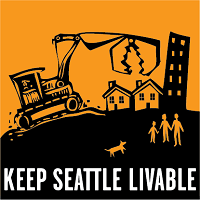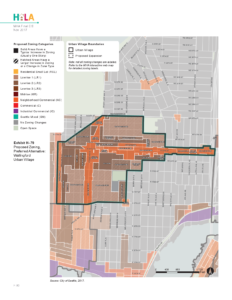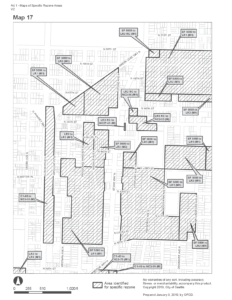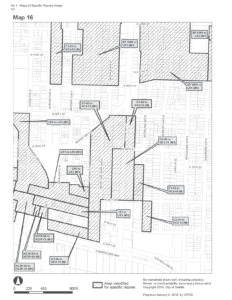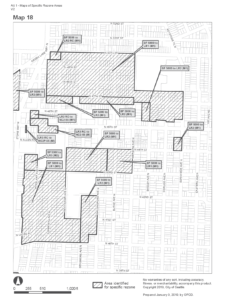City Councilmember Abel Pacheco and the Mayor need to hear from you before Monday. Contact them today!
Monday, July 1, 2019, 2:00 PM in Council Chambers at Seattle City Hall.
Councilmember Pacheco and the Mayor need to hear from you regarding proposed changes to the rules governing backyard cottages (Detached Accessory Dwelling Units or DADUs) and mother-in-law apartments (Attached Dwelling Units or ADUs) on single-family lots.
Currently, the City allows backyard cottages to be built on most single-family lots.
The proposed changes include:
- Removing the owner occupancy requirement. (Currently, the owner must live on-site.)
- Allowing both a mother-in-law apartment (ADU) and a backyard cottage (DADU) on the same lot, instead of one or the other, increasing the number of possible housing units on a single-family lot from two to three units.
- Increasing the height and size of backyard cottages while reducing the minimum lot size.
Concern: These changes combine to turn single-family lots citywide into targets for developer and investor speculation as they open up having three rental units on one single-family lot and decreasing the opportunities for home ownership. The Seattle Times Editorial Board writes, “The new proposal is a wish list for developers, private and nonprofit, allowing nearly every single-family lot to be used for triplexes.”
There are more proposed changes to be concerned about in this upcoming legislation regarding open space, trees, setbacks and property lines, parking, etc… To read more about these concerns, click here.
“Don’t be fooled by advocates calling this a moral imperative. This mostly helps politicians’ benefactors: developers and labor groups wanting license to build rentals virtually everywhere.”
– The Seattle Times Editorial Board
Think about it and share your opinion of these proposals with your elected officials in city government. It’s important that they hear from you now. See below for a suggested message.
Please call and comment by email to our City Councilmembers:
Abel Pacheco: 206-684-8808, abel.pacheco@seattle.gov
Lisa Herbold: 206-684-8803, lisa.herbold@seattle.gov
Bruce Harrell: 206-684-8804, bruce.harrell@seattle.gov
Kshama Sawant: 206-684-8016, kshama.sawant@seattle.gov
Debora Juarez: 206-684-8805, debora.juarez@seattle.gov
Mike O’Brien: 206-684-8800, mike.obrien@seattle.gov
Sally Bagshaw: 206-684-8801, sally.bagshaw@seattle.gov
Teresa Mosqueda: 206-684-8806, teresa.mosqueda@seattle.gov
Lorena González: 206-684-8802, lorena.gonzalez@seattle.gov
All Councilmembers: council@seattle.gov
Please share your concerns with Mayor Durkan:
Mayor Durkan: 206-684-4000, jenny.durkan@seattle.gov
Feel free to send your own version of this suggested message:
I encourage you to keep the current accessory unit rules allowing ADUs & DADUs to remain in place, as is, with no rule changes.
The existing rules support both home ownership and the city’s goal for 4,000 additional rental units through ADU development over the next ten years. The success of the current program can be seen through the rate at which new ADUs have and are currently being built throughout Seattle.
Under the proposed changes, owner occupancy is being dismissed as a requirement. Without the owner occupancy requirement, single-family lots city-wide will be turned into targets for developers and investors looking to increase their rental portfolios. As the Seattle Times asks, “If the goals are increasing housing opportunity and reducing economic disparity, why not preserve and widen pathways to home ownership and the middle class?”
Home ownership creates stability for families, individuals, pets, schools, and neighborhoods.
Please vote No on the proposed rule changes to the current ADU/DADU legislation!
Sincerely,
[your name]
For more information:
To read the DRAFT ADU Legislation – click here.
For a Comprehensive List of Changes and Concerns – click here.
To read the Seattle Times Editorial on this subject – click here.
For a letter from Phinney Ridge Community Council – click here.
To read suggestions for how to both increase backyard cottages and retain opportunities for home ownership – click here.

